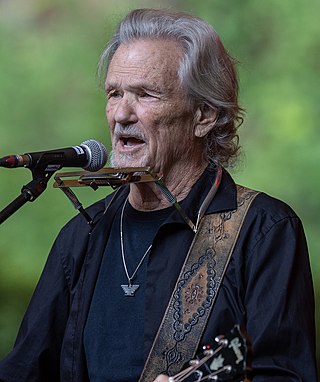
Kristoffer Kristofferson is an American retired country singer, songwriter, and actor. Among his songwriting credits are "Me and Bobby McGee", "For the Good Times", "Sunday Mornin' Comin' Down", and "Help Me Make It Through the Night", all of which were hits for other artists.

"Me and Bobby McGee" is a song written by American singer-songwriter Kris Kristofferson and originally performed by Roger Miller. Fred Foster shares the writing credit, as Kristofferson wrote the song based on a suggestion from Foster. A posthumously released version by Janis Joplin topped the U.S. singles chart in 1971, making the song the second posthumously released No. 1 single in U.S. chart history after "(Sittin' On) The Dock of the Bay" by Otis Redding. Gordon Lightfoot released a version that reached number 1 on the Canadian country charts in 1970. Jerry Lee Lewis released a version that was number 1 on the country charts in December 1971/January 1972 as the "B" side of "Would You Take Another Chance On Me." Billboard ranked Joplin's version as the No. 11 song for 1971.

"Promised Land" is a song lyric written by Chuck Berry to the melody of "Wabash Cannonball", an American folk song. The song was first recorded in this version by Berry in 1964 for his album St. Louis to Liverpool. Released in December 1964, it was Berry's fourth single issued following his prison term for a Mann Act conviction. The record peaked at #41 in the Billboard charts on January 16, 1965.
Milton Sims "Mickey" Newbury Jr. was an American singer-songwriter and a member of the Nashville Songwriters Hall of Fame.

Larry Wayne Gatlin is an American country and Southern gospel singer-songwriter. As part of the Gatlin Brothers trio that included his younger brothers Steve and Rudy, he achieved considerable success within the country music genre, performing on 33 top 40 country singles, a total inclusive of his recordings as a solo artist and with the group.
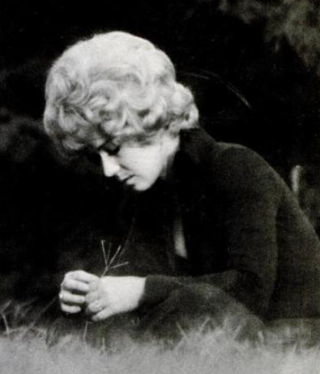
Jewel Fay "Sammi" Smith was an American country music singer and songwriter. She is best known for her 1971 crossover hit "Help Me Make It Through the Night", which was written by Kris Kristofferson. She became one of the few women in the outlaw country movement during the 1970s.
"Sunday Mornin' Comin' Down" is a song written by Kris Kristofferson that was recorded in 1969 by Ray Stevens before becoming a No.1 hit on the Billboard US Country chart for Johnny Cash.

Reggie Grimes Young Jr. was an American musician who was lead guitarist in the American Sound Studio house band, The Memphis Boys, and was a leading session musician.

The Highwaymen were an American country music supergroup, composed of four of country music's biggest artists who pioneered the outlaw country subgenre: Johnny Cash, Waylon Jennings, Willie Nelson, and Kris Kristofferson. Between 1985 and 1995, the group recorded three major label albums as The Highwaymen: two on Columbia Records and one for Liberty Records. Their Columbia works produced three chart singles, including the number one "Highwayman" in 1985.
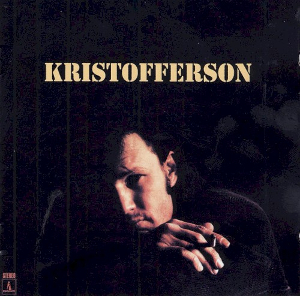
Kristofferson is the debut album of singer-songwriter Kris Kristofferson, which was produced by Fred Foster and released in June 1970 by Monument Records. After working a series of temporary jobs, Kristofferson became a helicopter pilot for oil companies in the Gulf of Mexico. While he worked, he wrote songs and pitched them to singers around Music Row in Nashville, Tennessee during his free time. Kristofferson's songs were recorded by country singers Roy Drusky, Jerry Lee Lewis and Roger Miller and later he persuaded Johnny Cash to try his material. Cash invited Kristofferson to perform with him at the Newport Folk Festival, after which Fred Foster signed Kristofferson to Monument Records as a songwriter and recording artist.

The Gospel Road: A Story of Jesus is a double album and the fourth gospel album and 45th overall album by American country singer Johnny Cash, released on Columbia Records in 1973. It is the soundtrack to the film of the same name released by Twentieth Century Fox.

"Help Me Make It Through the Night" is a country ballad written and composed by Kris Kristofferson and released on his 1970 album Kristofferson. It was covered later in 1970 by Sammi Smith, on the album Help Me Make It Through the Night. It has been covered since by many other artists from Tammy Wynette and Johnny Cash to Elvis Presley and Joan Baez.
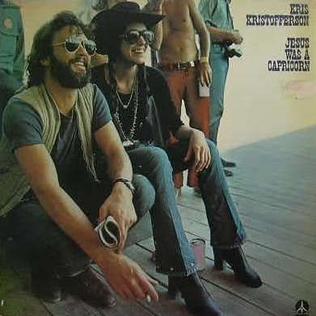
Jesus Was a Capricorn is the fourth album by Kris Kristofferson, released in 1972 on Monument Records. The album cover pictures Kristofferson and his soon-to-be wife Rita Coolidge. "Why Me" reached #1 on the Country singles charts.

Marijohn Wilkin was an American songwriter, famous in country music for writing a number of hits such as "One Day At a Time" and "My Long Black Veil". Wilkin won numerous awards over the years and was referred to as "The Den Mother of Music Row," as chronicled in her 1978 biography Lord, Let Me Leave a Song. It was honored as “One of the 100 Most Important Books about Nashville’s Music Industry.”

"You're the Best Thing That Ever Happened To Me" — also known simply as "Best Thing That Ever Happened To Me" — is a song written by Jim Weatherly, and produced by Don Law. It was first recorded in 1973 by Danny Thomas. Soon after it was done by Ray Price from his album You're the Best Thing That Ever Happened To Me. The song enjoyed two runs of popularity, each by an artist in a different genre.
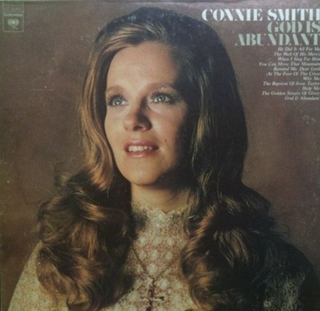
God Is Abundant is the twenty-first solo studio album by American country singer Connie Smith. It was released in November 1973 on Columbia Records and contained 11 tracks. The project was a collection of gospel recordings, chosen by Smith herself. Several of the songs included on the project were written by other country artists including Larry Gatlin, Kris Kristofferson and Dolly Parton. The album reached the top 20 of the American country LP's chart following its release.
"Please Don't Tell Me How the Story Ends" is a song written by Kris Kristofferson and first recorded by Bobby Bare, who included it on his Where Have All the Seasons Gone album in January 1971.
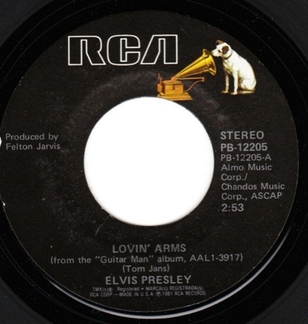
"Loving Arms" is a song written by Tom Jans and first recorded as a duet by Kris Kristofferson and Rita Coolidge for their 1973 album Full Moon.
"Help Me" is a song written by Larry Gatlin. A country gospel song, the lyrics tell the story of a world-weary and tired man pleading for guidance and reassurance from God. Gatlin performed the song at the funerals of both June Carter and Johnny Cash and dedicates the song to them during every performance.
"The Loving Gift" is a song written by Kris Kristofferson and originally recorded by the duo of Johnny Cash and June Carter Cash.















